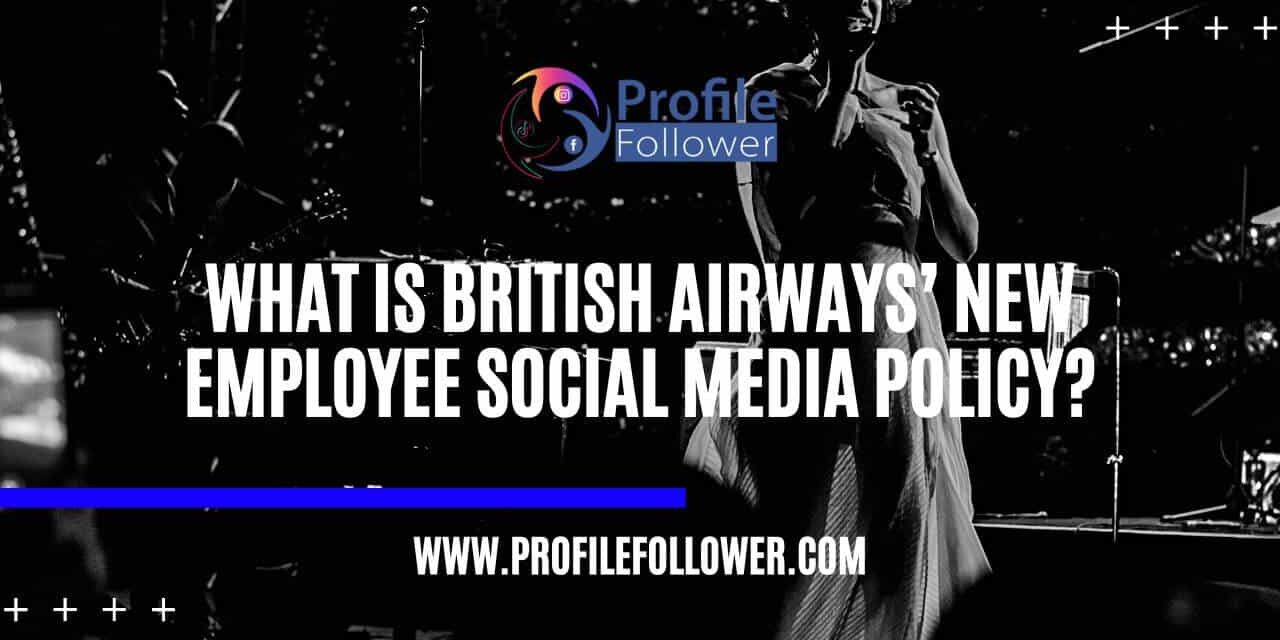There are few fantasies more compelling for children (and, let’s face it, adults) than getting to sit in the cockpit of a plane and watch as the pilot does their thing. All those complicated buttons, dials, and controls are way beyond the understanding of us mere mortals, but pilots and qualified aviation engineers look like superheroes as they effortlessly navigate the tangled web of levers that is a plane’s cockpit. Of course, one thing that can give us a basic idea of what it’s like to fly a plane is social media.
Over the last few years, with the advent of platforms like TikTok and the increasing popularity of apps like Twitter and Instagram, aviation-based social media has skyrocketed. Pilots, flight attendants, and other aviation employees have taken to social media to show off their daily jobs, giving others a valuable insight into what they do on a daily basis. Now, though, British Airways has introduced a controversial new social media policy that may restrict its employees from posting about what they love.
What is the new British Airways social media policy?

British Airways social media policy
According to employees familiar with the company, as well as aviation websites and enthusiast platforms, British Airways has introduced a new social media policy that restricts employees from posting on social media while “professionally engaged”. In essence, this appears to mean that while employees are doing their jobs – while they’re at work, in other words – they are forbidden from posting about what they’re doing on social media.
It’s not clear whether this ban extends to employees posting about things that aren’t related to work. However, given the wording of the policy, which requests that employees don’t “post on social media or capture content when…professionally engaged”, we can assume that employees should not access any social media whatsoever while working on British Airways flights or engaged in any professional capacity for British Airways.
Why has this policy been introduced?

Why it has been introduced
According to aviation site Simple Flying, the changes could have been made for a number of reasons. Chief among them could be safety; Simple Flying says that the new guideline refresh could ensure that posting only takes place when BA staff aren’t “otherwise occupied with safety-critical tasks”. This makes sense as an approach; although flying is statistically one of the safest forms of travel, it’s still important for passengers to feel safe while they’re on an aircraft.
Another reason could be more corporate in nature. It’s likely British Airways may want to head off any potential leaking of corporate secrets at the pass, and stopping employees from posting about their jobs could be a good way to do this. Some employees may feel tempted to go too far in posting about their jobs as a way to build clout on social media, and it’s possible British Airways wants to ensure that this doesn’t result in negative fallout for the company itself.
What has the reaction been among BA employees?

British Airways Employees
As you’d imagine, some British Airways employees aren’t particularly happy about the changes. Employees took to Twitter to say that the changes were “a shame”, with aviation enthusiast and pilot Captain Mark saying he was “sad to say” he wouldn’t be posting any more content relating to his work owing to the guidelines. Many well-liked aviation enthusiasts and British Airways employees on social media have lamented the changes.
It’s important to note here that employees aren’t prohibited from posting content during breaks or while they’re enjoying time off. The changes appear to be motivated by passenger safety and corporate protection rather than some mean-spirited desire to stop employees having fun, and for the most part, the aviation community appears to have responded sensibly to the changes, expressing its disappointment in a reasonable and level-headed way.
What will this mean for aviation enthusiasts on social media going forward?

Aviation Enthusiasts
As you might imagine, these new guidelines will likely lead to changes in the way that aviation enthusiasts interact with social media going forward. We’re likely to see a lot less content involving close-ups in aeroplane cockpits, for instance, or videos that talk about British Airways rules and regulations (or aircraft specifications) in light-hearted and analytical ways. This will come as a blow to the aviation community, which has enjoyed videos like this for a long time.
Still, the aviation content isn’t necessarily going away. Not all airlines have adopted these guidelines, although it’s easy to imagine a world in which similar policies are put in place by other airlines in future. Simple Flying points to a tweet (which has since been deleted) by the Twitter pilot KatiePilot, in which she says she’s simply going to modify her content going forward. Many pilots and other aviation professionals will likely continue to post content about aviation on social media, but it’ll be less in-depth than before.
Will this apply to other industries?

different industries
Obviously, British Airways doesn’t have jurisdiction over other industries, so it’s impossible to say whether other employers will adopt similar guidelines to these. Many people post content about their jobs on social media platforms like TikTok, especially when those jobs involve doing something exciting or interesting. If companies do want to change guidelines so that employees can’t post about the things they do in their day-to-day jobs anymore, it’ll be important for those companies to keep the employees in the loop and make sure they’re part of the conversation.

